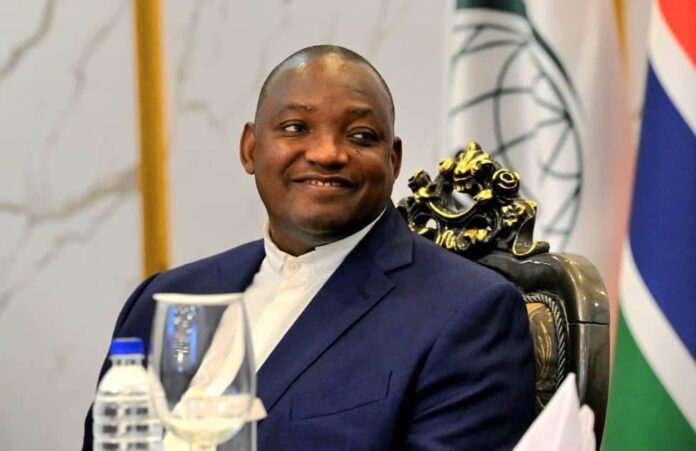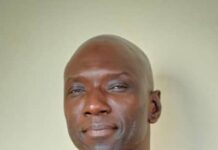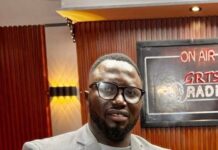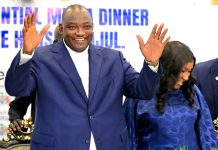By Alf Soninke
It was not surprising that President Adama Barrow declared, in the recent QTV State of Affairs interview, that he needs to continue in office so as to save his ruling NPP party from an early political death.
Watching GRTS on the recent opening of the NPP regional political bureau in Banjul, one clearly heard what the NPP’s national campaign manager, Lamin Cham, and the party leader, Adama Barrow, said.
In their speeches at the event, both called for unity and hinted at serious disharmony within the NPP’s top ranks.
So, Barrow is right when he says that his young NPP needs him to lead the party. Yet he must find a way to continue to stir its affairs without necessarily being the NPP’s flag-bearer in 2026.
Borrow must know that a wind is blowing in West Africa and beyond against incumbents who aspire to a third term.
So, it would be a mistake for Barrow to attempt to be a presidential candidate in 2026. He must seek good advice and, in fact, pray for divine guidance in this matter of importance to not only the NPP but to the bigger national interest.
As a way forward for him and the NPP, Barrow can work on the party constitution, which will enable him to continue steering the party’s affairs into the future after his presidency.
Seeing that no man is indispensable, Barrow must learn lessons from the missteps of his benefactor, former Senegal President Macky Sall.
Actually, more pertinently, Barrow should learn from what happened to both his predecessors in Gambia, Sir Dawda Jawara and Yahya Jammeh.
We all witnessed what happened at the PPP congress in Mansakonko in 1992, when Jawara announced that he intended to step down and then changed his mind after yielding to the elders crying, wailing, and begging him to continue to stay in office. We all know what followed and happened to Jawara and his ruling PPP in July 1994.
To some of us, if Jawara had prepared himself for a smooth constitutional transfer of power by identifying and handing over to a successor, say BB Darbo, for example – of course, bearing in mind the many factors at play and circumstances at the time – then the PPP would have survived.
Also, some have speculated that if Yahya Jammeh had identified and selected someone to replace him, say Edward Singhateh, the APRC would still be in power in Banjul today.
Instead, we witnessed Jawara and Jammeh giving in to hubris. As a result, both leaders have lived to suffer disastrous consequences for themselves and their governing parties.
To avoid a similar fate and in order to continue to be a credible force into the future in Gambian politics – which Barrow gave in the interview as his reason for wanting to stay beyond 2026 – we think there is a way forward.
Barrow is definitely the glue that holds the NPP intact. Taking a cue from the speeches at the Banjul bureau opening and QTV interview, the NPP, it is apparent, feels that right now, without Barrow at the helm, it lacks a person in its executive who can unite and lead the party to continue winning elections and staying in power.
However, what we have seen elsewhere—in Senegal, for example, and, in fact, in Gambia, where Barrow’s rise to the presidency is a good indicator—shows that determining who finally gets to lead a nation is never easy.
However, Barrow and his NPP still have time to work on the party’s constitution so that Barrow can continue as party leader without becoming the party’s flag-bearer in 2026.
If Barrow has trouble identifying a potential successor from within his NPP entourage, he can look outside the circle of close collaborators, including in the diaspora, for a person whom the NPP can present to Gambians as their presidential candidate in 2026.
Again, Barrow can and must learn lessons from Macky Sall’s Apr and his BBY coalition in Senegal. However, He can also learn from his immediate predecessors, Jawara and Jammeh.
All three, Jawara, Jammeh, and Macky Sall, left it too late or, more correctly, failed to groom and support a credible candidate who could win elections and succeed them.
Thus, they have all faced and suffered dire consequences.






